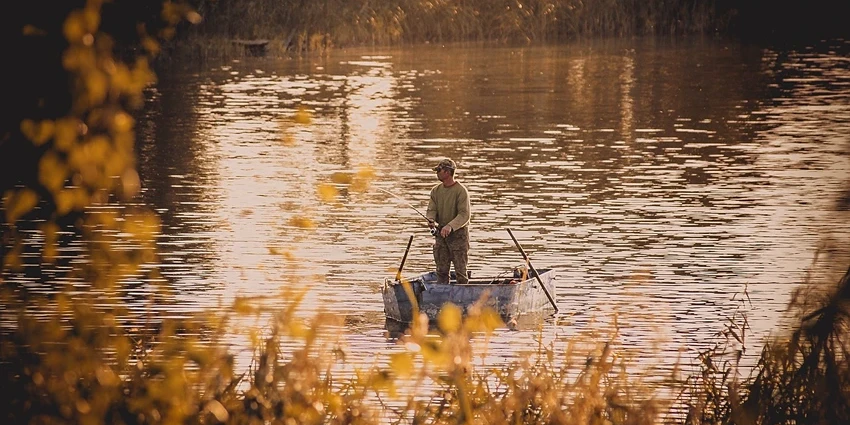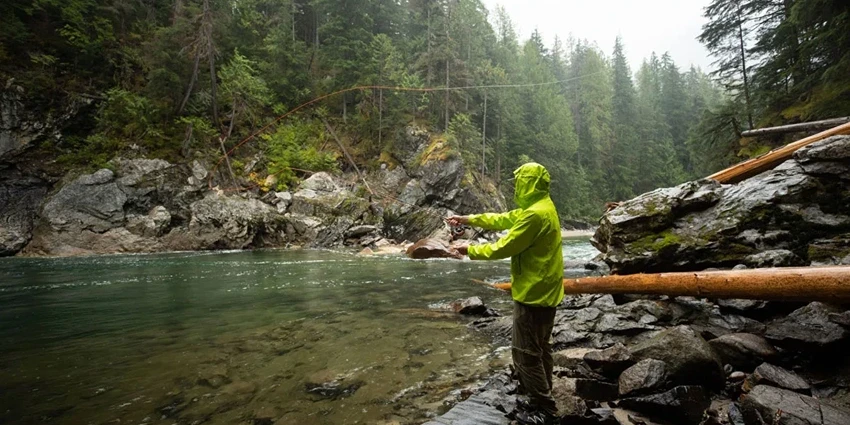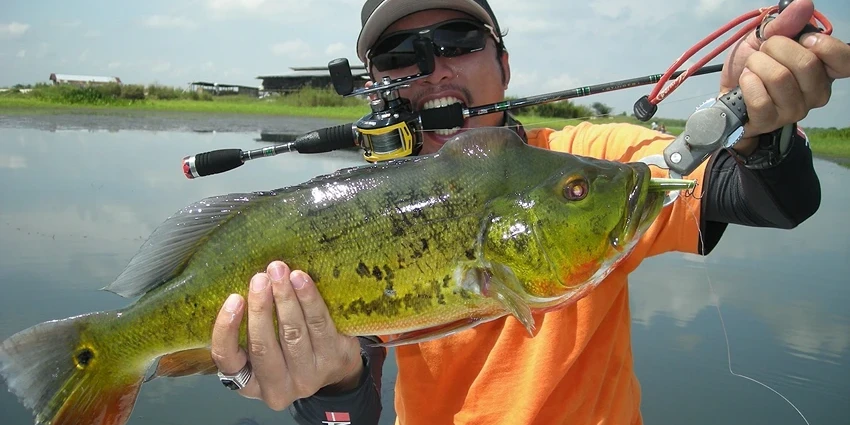All products were chosen independently by our editorial team. This review contains affiliate links and we may receive a commission for purchases made. Please read our affiliates FAQ page to find out more.
Freshwater fishing is not just a pastime; it’s an adventure that brings us closer to nature. However, with adventure comes the responsibility of ensuring safety. Whether you’re a seasoned angler or just starting out, understanding and implementing safety precautions is crucial for a fulfilling fishing experience. This article delves into the essentials of freshwater fishing safety, offering practical advice to keep you safe and sound while you enjoy the tranquility of nature’s waters.
Jump to:
Introduction to Freshwater Fishing Safety
Freshwater fishing offers a serene escape from the hustle and bustle of daily life. But, it’s essential to remember that safety should always be your top priority. By understanding the basics of fishing safety, you can ensure that your time spent by the water is both enjoyable and secure.
Essential Safety Gear for Freshwater Fishing
- Life Jackets: The most crucial piece of safety equipment when fishing from a boat is a life jacket. It’s vital that every passenger wears one, as it can be a lifesaver in case of an unexpected fall into the water.
- First Aid Kits: Accidents can happen, and being prepared with a first aid kit is essential. It should include bandages, antiseptic, tweezers, and other basic first aid items.
- Protective Clothing: The right clothing can protect you from the elements. Layering is key, with water and wind protection as the outermost layer. Don’t forget a hat and sunglasses for sun protection.
Pre-Fishing Safety Checks
- Weather and Water Conditions: Always check the weather forecast and water conditions before heading out. Sudden changes in weather can be dangerous, especially on open water.
- Equipment Inspection: Regularly inspect your fishing gear and boat. Ensure that everything is in working order to avoid any mishaps during your fishing trip.
Safe Fishing Practices
- Handling Equipment: Be cautious when casting and handling your fishing rod. Ensure that no one is in close proximity to avoid accidents.
- Fish Handling: Learn the proper way to handle fish. This not only ensures your safety but also the well-being of the fish, especially if you’re practicing catch and release.
- Navigating Water Bodies: If you’re fishing from a boat, be aware of your surroundings and navigate carefully. Avoid areas with heavy boat traffic or hazardous conditions.
Emergency Procedures and First Aid
- Recognizing Emergencies: Be aware of signs of distress in yourself or others. This could include symptoms of dehydration, hypothermia, or injuries.
- First Aid for Fishing Injuries: Know basic first aid for common fishing injuries like cuts, hooks in the skin, or sunburn. If the injury is severe, seek medical attention immediately.
- Seeking Help: Always have a means of communication, like a cell phone or a radio, especially in remote areas. Know the local emergency numbers or have a way to signal for help if needed.
Advanced Safety Tips for Experienced Anglers
Even if you’re an experienced angler, it’s important to stay updated on safety practices. Advanced safety tips include understanding the local environment, being prepared for emergencies, and practicing ethical fishing.
Family and Child Safety in Freshwater Fishing
Fishing with family and kids can be a wonderful experience. Ensure that children are always supervised and are wearing appropriate safety gear, like life jackets. Teach them basic safety rules and make the experience fun and educational.
Seasonal Safety Considerations
Different seasons bring different challenges. In summer, be prepared for heat and sun exposure. In colder months, be aware of the risks associated with ice fishing and ensure that the ice is thick enough to support your weight.

Advanced Safety Tips for Experienced Anglers
Even if you’re well-versed in fishing, it’s always beneficial to brush up on safety tips. Advanced anglers should be aware of local environmental conditions and be prepared for any situation that may arise.
Navigational Skills and Waterway Knowledge
- Understand Local Waterways: Familiarize yourself with the local water bodies, including any hazards or unique conditions.
- Advanced Emergency Preparedness: Always have a plan for emergencies, including quick access to communication and rescue services.
Ethical Fishing Practices and Environmental Consideration
- Sustainable Fishing: Practice catch and release where appropriate and be mindful of local wildlife and habitats.
- Environmental Awareness: Stay informed about the environmental impact of fishing and contribute to conservation efforts.
Register for our latest in-depth reviews and product round-ups from the experts
Enter your email address below to receive our twice monthly reviews emails.
By entering your details, you are agreeing to our terms and conditions and privacy policy. You can unsubscribe at any time.
Family and Child Safety in Freshwater Fishing
Fishing with family, especially children, can be a rewarding experience. It’s important to ensure their safety and make the experience enjoyable.
Special Considerations for Young Anglers
- Supervision: Always keep an eye on children, especially near water.
- Safety Gear for Children: Ensure they have the right-sized life jackets and protective gear.
Creating a Safe and Enjoyable Experience for Children
- Educational Activities: Teach them about different fish species, water safety, and the importance of preserving nature.
- Engaging Fishing Techniques: Start with simple, child-friendly fishing methods to keep them engaged and interested.
Seasonal Safety Considerations
Different seasons present unique challenges and opportunities for freshwater fishing.
Summer Fishing Safety
- Heat and Sun Exposure: Stay hydrated and protected from the sun. Use sunscreen and wear light, breathable clothing.
- Dealing with Insects: Use insect repellents and wear protective clothing to avoid bites.
Winter Fishing Safety
- Ice Fishing Considerations: Ensure the ice is thick enough for safety. Be aware of the signs of ice weakness.
- Cold Weather Gear: Dress in layers to stay warm and dry. Use thermal clothing and waterproof outer layers.
Frequently Asked Questions (FAQs)
A life jacket is essential, especially when fishing from a boat.
Always supervise children, provide them with appropriate safety gear, and teach them basic safety rules.
Administer first aid if possible and seek medical attention for serious injuries.
Check ice thickness regularly, avoid old ice, and be prepared for emergencies.
Practice catch and release where necessary, respect local wildlife, and follow all fishing regulations.







